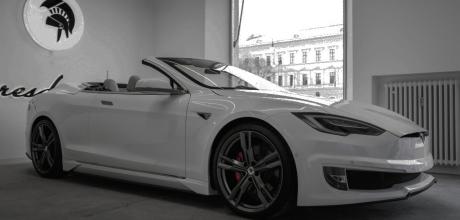Is electric car the automatic choice?
The sums involved in working out the costs of electric car ownership have always been very simple. Compared with a petrol or a diesel car, traditionally you pay a lot more up front to buy an electric car in the first place, but then you reap the rewards over the lifetime of the car with far lower per-mile running costs, reduced servicing and repair bills, and fiscal advantages such as zero road tax on lower-priced EVs. As the cost of batteries declined, this allowed electric cars to be priced more competitively, altering the balance of the calculation.
BRIGHT SPARK
But the economic dislocation caused by two years of coronavirus, and also by the conflict in Ukraine, are starting to affect the maths associated with the switchover to electric in several different ways.
The most obvious of these is that production shutdowns and parts shortages (especially semi-conductor chips) have restricted the supply of new cars at a time when customers coming out of lockdown want to get out on the road again. They’ve got their buying boots on and want to catch up on years of deferred consumption. This means that lots of cars have become more expensive – and that’s not just to do with list prices. Big discounts on new cars and delivery mileage pre-reg models – the market was awash with these until a year or so ago – have been replaced by long delivery times for several models and very strong pricing for younger used cars.
Since the switchover to electric relies on people buying new cars that are less polluting than their old ones, low supply and off-putting high prices would appear, on the face of it, to undermine the transition. But look below the surface and there’s all sorts of other stuff going on as well. For a start, restricted supply and richer pricing has greatly boosted the profitability of manufacturers such as Mercedes-Benz. That should give them bigger war chests to finance the development of new EVs. Also, faced with a shortage of components such as semi-conductor chips (and now wiring looms made in Ukraine), the manufacturers will logically alter their production mix in favour of more profitable models, or in order to address other strategic priorities; for example, it has been widely reported that Volkswagen has protected chip supply to its high-margin Bentley operation. There’s no reason why the manufacturers can’t similarly favour EVs if they want to drive the changeover, and it appears that fossilfuelled cars, which previously enjoyed the biggest discounts, have indeed become pricier relative to EVs. Against that, though, shortages of materials such as lithium are reversing the longterm downward trend in battery prices and could also start pushing EV prices up again too.
“…THE TRENDY NAMED ALTERNATIVE ELECTRICITY SUPPLIERS HAVE GONE BUST, TAKING THEIR ZIPPY NAME AND GIMMICKY LOGOS WITH THEM…”
The current turmoil is also affecting the relative running costs of electric and fossil-fuelled cars. When pump prices for diesel and petrol started rising steeply, and supply shortages led to queues and sporadic forecourt closures, we’re sure most electric vehicle drivers with the option of topping up at home were feeling a bit smug. But electricity prices have shot up as well. Previously, it was thought that the cost of charging up an electric car was negligible, and many never bothered with special overnight rates or deals aimed specifically at EV drivers. Charging costs were just lost in the noise as drivers usually chased the lowest cost electricity tariff as part of their day-to-day budgeting at home.
Now the trendy named alternative electricity suppliers have gone bust, taking their zippy name and gimmicky logos with them, and those unlucky owners are transferred onto a pricey standard tariff, sometimes with British Gas. The opportunities for switching and fixing have mostly dried up. So that’s all got us thinking about the cost of EV charging for the first time, and it provokes thoughts about smart meters, solar panels, and home storage batteries in an effort to get things back under control. And how will official policy be changed in order to address the economic and political turmoil we face? Will the government start boosting electric car subsidies again in order to reduce the UK’s dependence on oil? Will rising interest rates undermine the favourable finance deals that most British private car buyers rely on to afford their next shiny new motor?
We’re not sure how these many countervailing pressures will finally end up in terms of the relative balance of costs between electric vehicles on the one hand and petrol and diesel cars on the other. But the simple, clear mathematics of switchover that we have been conveying in this column previously is probably going to get a lot more blurred and complicated.


